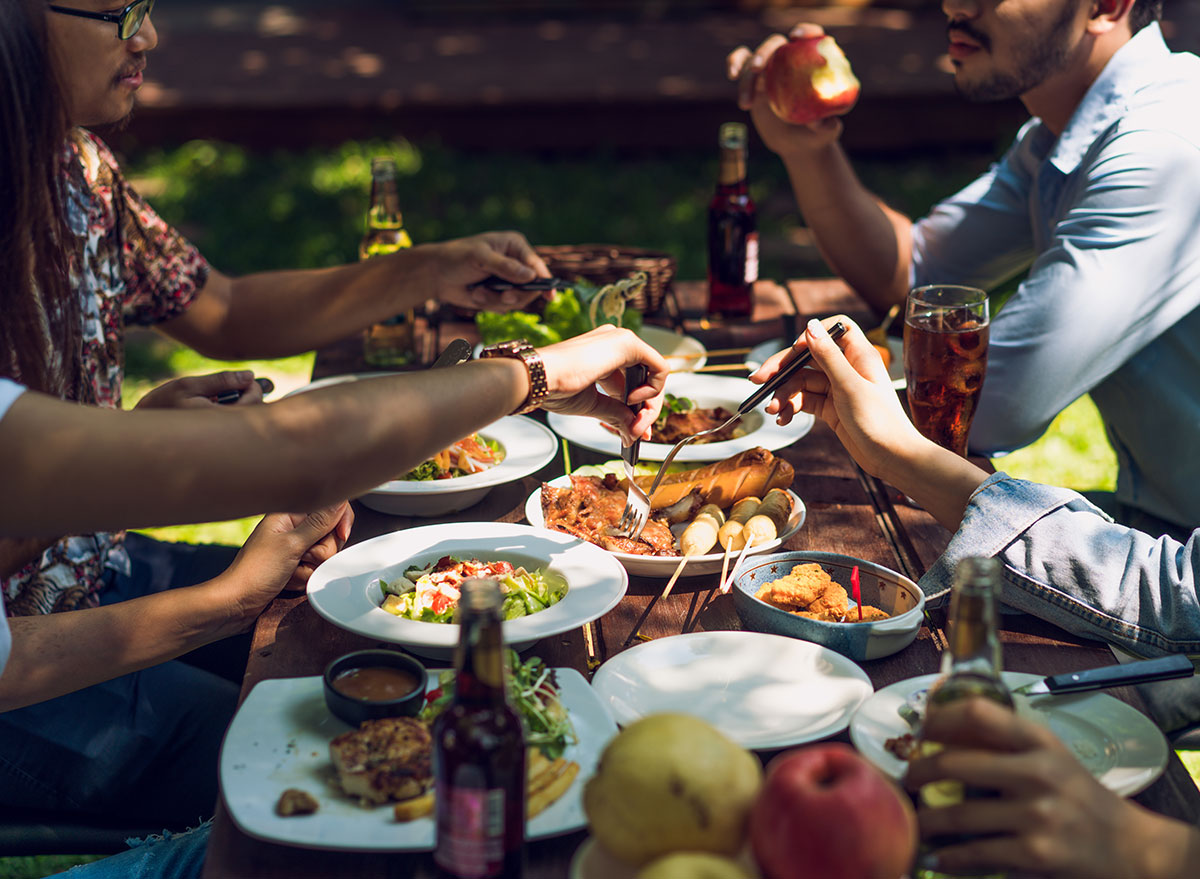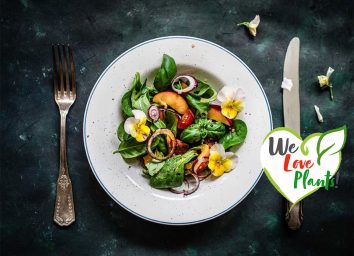3 Surprising Warning Signs You’re Eating Too Much

Many of us are likely to admit that at the start of the pandemic we were letting ourselves indulge in our favorite comfort foods. However, now that working from home is becoming the new normal for many Americans—especially for those who live in large metropolitan areas and are non-essential workers—it may be time to reevaluate what normal snacking looks like for you.
Our bodies all operate differently, however, there are few telltale signs that may indicate you are eating more than your body needs. First, it’s important to understand the difference between calorie quality versus calorie quantity.
“The myth of calories in equals calories out has been busted and we now know calorie quality matters more than calorie quantity,” says Sydney Greene, MS, RD. “Think about it, 100 calories worth of Cheetos is not the same as 100 calories worth of broccoli.”
In the health world, Cheetos are often referred to as empty calories as they don’t have any nutritive value. On the contrary, broccoli contains satiating fiber and even some protein as well as vitamins and minerals.
“The body actually has to expend energy to digest the broccoli whereas simple carbohydrates, like those in Cheetos, are broken down quickly and then stored as fat,” says Greene. “The key is to use foods that the body has to work to break down.”
Now, here are three signs that you’re eating more food than your body actually needs.
You have slow and steady weight gain.

Perhaps the most obvious sign of overeating is continuous weight gain. Greene says if you notice the number on the scale is constantly increasing, it’s likely that you’re either eating too many foods with low-quality calories or you’re eating too big of portions.
“I suggest keeping track of what you are eating during the day in a journal,” she says. “Pay attention to see if you are grazing throughout the day or eating large portions.”
You constantly think about food.

“Physical and emotional hunger are different and it takes practice to know the difference,” says Greene.
For example, if food is always at the forefront of your mind and you find yourself lingering around the pantry and refrigerator often, “chances are there might be something deeper going on emotionally and it might be wise to explore other ways to self soothe,” she explains.
You never feel satisfied.

Have you ever thought that feeling full and feeling satisfied hold two different meanings?
While a big salad can make you feel full, some people don’t always find it to be the most satisfying, which then may cause them to eat another meal or load up on snacks. The key is to incorporate a variety of nutrient-dense foods that you like in each meal.
“I recommend eating meals you enjoy rather than focusing on meals you ‘should’ eat,” says Greene. “You will be less likely to overeat or over snack later in the day.”
In general, she says to switch your focus from calories to, instead, the quality of the foods you’re eating. If your plate is filled with complex carbohydrates, vegetables, protein, and healthy fats then you’re more likely to walk away from each meal feeling satisfied.
“For those who are number-driven, instead of counting calories focus on counting grams of fiber,” she says. “[You] need at least 30 grams of fiber per day and most of the population only consumes half of this.”
Now, it’s time to make a more conscious effort to reach for more high-quality snacks.








